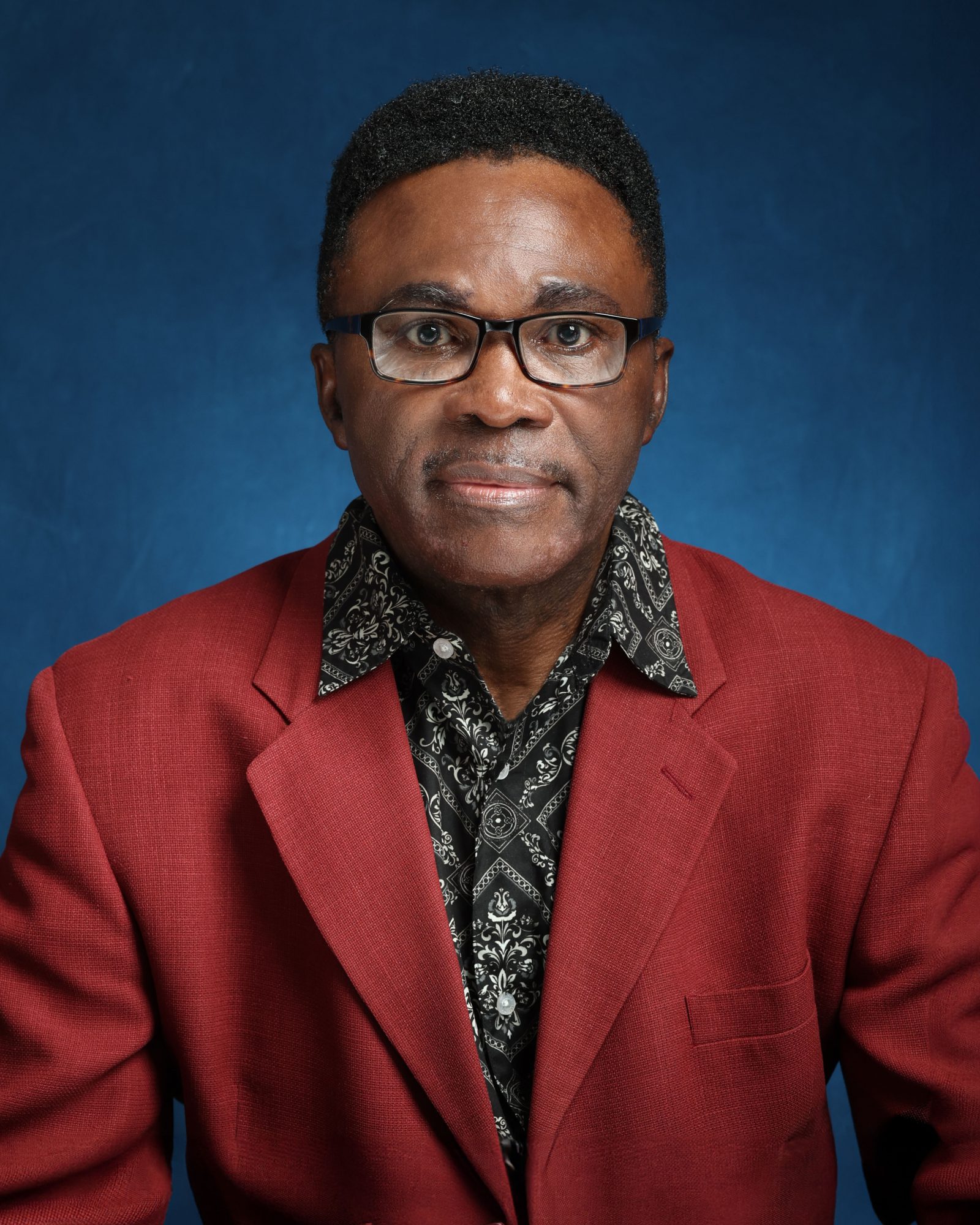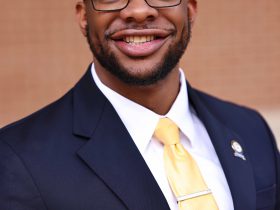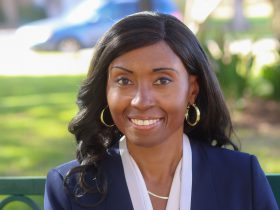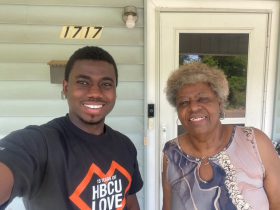After meeting Pope John Paul II in 1981 and surviving a Nigerian civil war nearly a decade earlier, Edmund C. Merem, Ph.D., could not have predicted then how those life-changing events would strengthen his faith and shape his career today in Jackson State University’s Department of Urban and Regional Planning (DURP).
Years before his work in the environment and land use division at JSU, full professor Merem had been a student in Rome and a guest at the Vatican. There, the pope gave a powerful exhortation about the role of the family.
“Without family, there is no society. Without society, there is no development,” said Merem, expressing that the pontiff’s message about honoring human dignity, civil rights and social justice remains relevant today. He said the pope believed in God’s original purpose of the family, which also is key to sustaining cities and natural environment. The mission underscores Merem’s advocacy for urban, regional and planning.
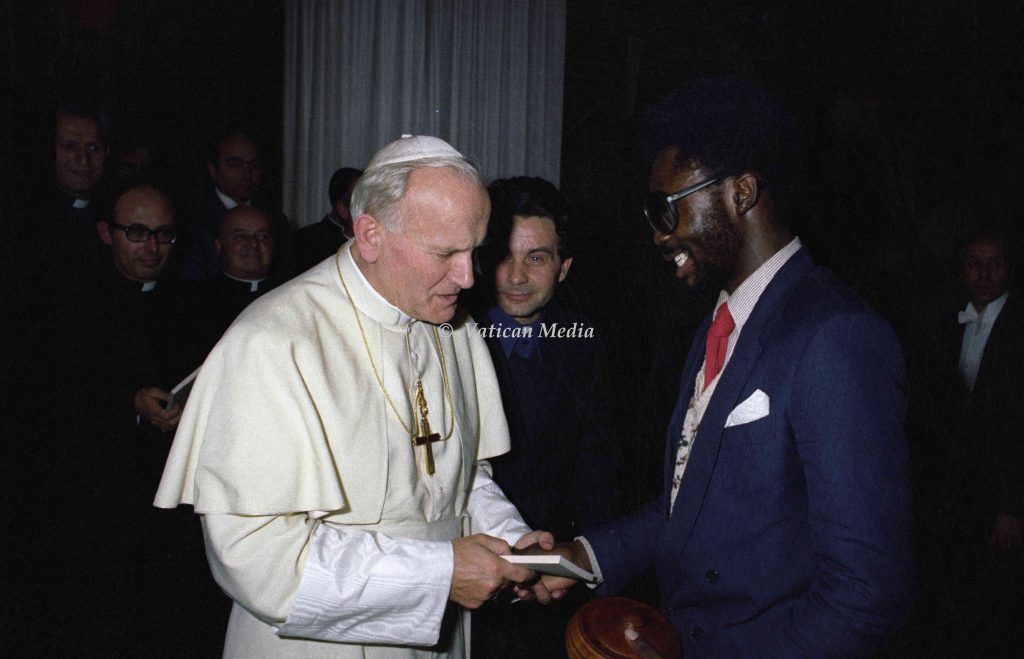
Today, Merem credits JSU, the College of Science, Engineering and Technology, and Evangelist Ebuka Obi of Zion Ministry, Lagos for giving him a platform to carry out his transformative work in the pursuit of social and environmental justice for which he has garnered worldwide respect.
While in Rome, after leaving Nigeria, Merem developed a spirit of giving that landed him various public service roles. He sought to make a difference in the lives of others by developing plans to improve the environment and welfare of humankind. He said, “Everyone deserves dignity and freedom.”
His mission began to quickly manifest after his visit to the Vatican. For him, it was “surreal” because Merem was the only African/Black person among his student peers to witness the papal tradition of highlighting societal ills to the world. The speech, which happened at the height of Liberation Movements in Africa and during the Cold War, earned Merem an “unforgettable conversation” with the pope.
“His Eminence beamed after learning of my West African Nigerian nationality during the introductions. From there, he told me of his planned missionary visit to my homeland in 1982.”
Pope John Paul II’s revered document is known as the “Apostolic Exhortation Familiaris Consortio: The Christian Family in the Modern World (1981).” Ultimately, it influenced subsequent exhortations by future popes who advocated principles designed to preserve society and elevate modern-day families.
John Paul’s message reminded the world that the family is under continuous attack, Merem said. “The document stands out because it reveals a pope sensitive to the plight of families and highlights the need for human welfare, which is essential to sustaining planning and development.”
Failure to plan creates disadvantages and harm. Merem cited the lack of land ownership in African American communities along with mercury and lead exposure in minority-populated areas. He calls these systemic problems that must be addressed strategically and expeditiously.
His vision for change particularly came into focus after having served as a former bureaucrat and scholar in the Department of Agriculture in Canada. There, he said he saw firsthand the environmental and social injustices against native Indians that threatened their land and culture.
Reflectively, Merem said his experience in the inner Episcopal hallways of the Vatican helped him to channel his dreams into new frontiers of teaching.
As a JSU professor, he has raised global awareness about the callousness of outside forces toward developing nations, especially in West Africa. Among these external vices include the illegal export of electronic wastes; the European Union’s dumping of dairy products to the detriment of local farmers; the illegal plunder of fish; and the illicit trafficking in endangered wildlife to other continents. Internally, transboundary water crises erupt between adjourning African nations.
Particularly, the insensitive behavior of affluent external forces reminded Merem of the papal experience that influenced his philosophy on planning, design and environmental ethics. “I developed a better understanding of my vocation and call to service with respect to honoring human dignity, rights of others, equity, social justice, honesty, hope and faith,” he said.
At JSU, Merem teaches planning and environmental ethics that are rooted in moral and social principles and raise awareness about the needs for improvements in communities of color, especially for those on the margins of life.
“Our work in urban planning illuminates the conscience of people in authority with whom we share our research. Construction of neighborhoods or new subdivisions just cannot emerge without families who make up such places. The same applies to cities that rely on families to generate municipal revenue. These examples illustrate the relevance of the Vatican document.”
Moreover, Merem said finding a solution to many of the ills plaguing marginalized communities and developing nations requires a multidisciplinary approach. These steps must include scientific research into environmental risks and injustices so that experts can predict, respond to and alleviate dangers in vulnerable areas.
As the lead faculty member and Ph.D. program coordinator in DURP, Merem is shining the spotlight ever so brightly on past and present social and environmental inequities. His upcoming third book, “The Anthology of African American Environmental History,” examines the immorality of unpaid slave labor that helped to preserve natural resources.
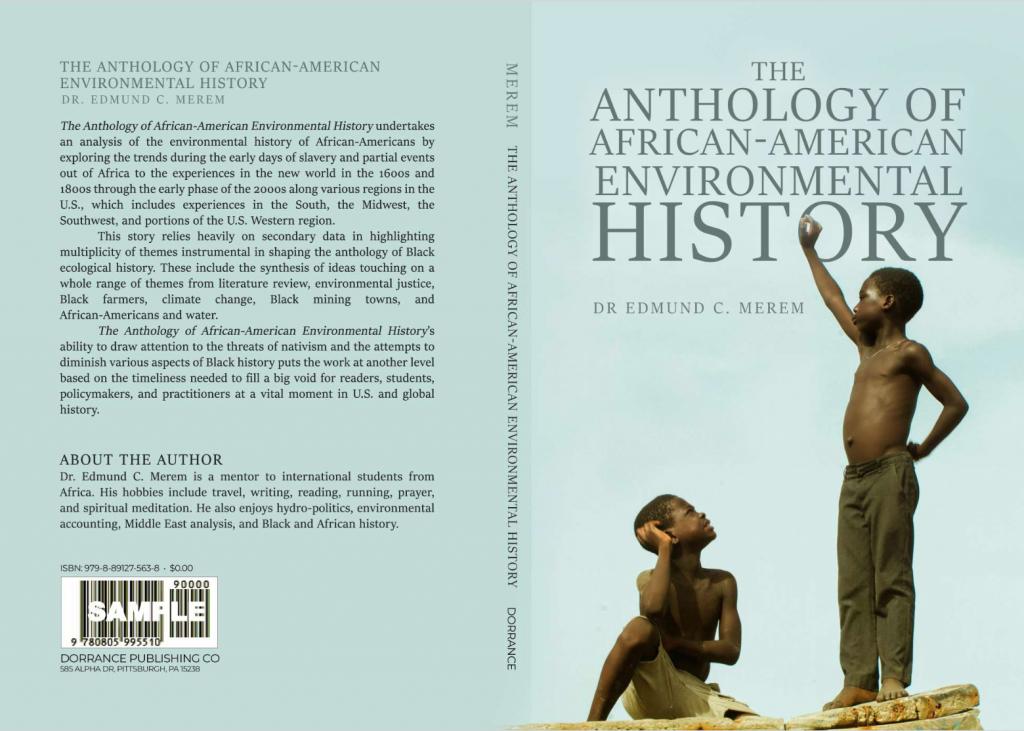
He also attributes the slaves’ stagnation to their forced presence in a setting heavily dependent on plantations for food and farming. Because Africans historically have cultivated rice, cotton, tobacco and other produce in their native lands, this familiarity prolonged their burdens from oppressors who exploited their know-how. Nevertheless, the injustice and violence against slaves in the U.S. have triggered a loud chorus for legitimate reparations to the descendants of slaves.
Due to present-day injustices, Merem said DURP must continue to train students to improve the environment, restore families, revive neglected communities and help preserve natural resources. He believes these efforts align perfectly with Pope John Paul II’s message for sustaining the modern world.



